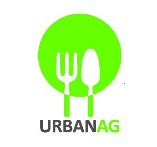Open Day 27 April 11:00 – 15:00 |
| Rice Lane City Farm, Rawcliffe Rd, Liverpool L9 1AW . There will be tours of the site and explanations on Aquaponics and information on the various free courses offered by Urbanag CiC. |
The Urbanag team will be there to give an introduction to the world of engineering, and uses aquaponics to teach engineering principles. Aquaponics is a method of producing food that is well suited to the urban environment. It produces fish and vegetables without needing soil, or even much space.
You will probably have more questions at this point so we would be very happy to discuss things before you make a commitment.
Contact us by :-
emailing [email protected]
phoning John Smith on 07948372821.
Even if you can't go personally - please share this URBANAG open day event link with any unemployed women you may know of in the Merseyside area who you think could benefit with help into employment.
0 Comments
Free to Attend -
URBANAG will be at the Learning & Employment Roadshow on Wednesday 15th March 11.00am-2.30pm at The Reds Lounge - Liverpool Football Club Walton Breck Road, Anfield
We have started planning our 2017 course schedule and would like to see what interest there is in our new course subjects and venues so that we can book all the resources appropriately.
Introduction to Engineering
Introduction to Engineering for Women – a course for unemployed women living in the Merseyside area, that offers an introduction to the wider world of engineering and especially looks at aquaponic engineering. But even if you’re not interested in aquaponics this course may be for you as it will introduce you to all the basic skills of engineering. It will help you then decide how you may go forward with what type of engineering you choose for your future.
Dates: Spring / Summer / Autumn 2017
Venue: Liverpool
Please contact us if you know of someone who could benefit from this course, and we will see if they can qualify for funding of a free place.
Dates: Spring / Summer / Autumn 2017
Venue: Liverpool
Please contact us if you know of someone who could benefit from this course, and we will see if they can qualify for funding of a free place.
We are hoping to get one of us from the Urbanag team down to the BAQUA conference so as to give a bit more of our North of England view on aquaponics.
BAQUA 2016 Convention
Friday 2nd Sept: One-day Commercial Aquaponics Course at BioAqua Farm
Saturday 3rd Sept: Aquaponics Convention at Bridgwater College
BAQUA 2016 Convention
Friday 2nd Sept: One-day Commercial Aquaponics Course at BioAqua Farm
Saturday 3rd Sept: Aquaponics Convention at Bridgwater College
We are planning our Urbanag Aquaponics spring and summer course schedule and would like to test out what interest there is in the various locations so that we can book resources appropriately.
So why Aquaponics ?
|
+ Aquaponics - B2: Design Basics (Two-day)
+ Aquaponics - I5: Intensive (Five-day)
+ Aquaponics - E5: Practical Design (Evening)
We have built each of these courses as a series of modules that will allow you to get the specific information and hands on experience that will equip you to start your own project.
Overview of the Aquaponics course key modules:
Overview of the Aquaponics course key modules:
- Advantages and Disadvantages of Aquaponics
- What is Aquaponics its History and Relevance Today
- Urban Farming
- Science of Animal and Plant Growth
- Biofilters and the Nitrogen Cycle
- Water Quality and Chemistry for Maintenance, Monitoring and Adjustment
- Aquaponics System Design Options
- Equipment: Hobby and Commercial Sized
- Design of Family Sized Low Cost Aquaponics System
- Doing a Cost Benefit Analysis
- Setup and Managing a Commercial Aquaponics Venture
For more info contact: URBANAG
Let us know your interest without obligation and we will inform you as and when courses will be run, as these courses are dependent upon the level of interest shown.
URBANAG 2016
Come February of this year Urbanag will be 6 years old. While its true to say we have done much and developed new ideas on the progress of Urbanag's central theme, the development of urban agriculture, has not however greatly progressed. That does not mean to say that there has not been plenty going on. Quite the contrary many groups and communities have engaged in food growing activities and now have poly tunnels and plots of local produce at their community and other centres. This addition to total food supply is however extremely limited and projects have been as much about community activity and cohesion as that of food production. This is not to be critical but simply make the point we are still a very long way from having urban agriculture as an easily recognised activity.
Do we need it?
Certainly the supermarkets are full of food and competition has kept prices low with new retailers changing earlier model's in order to keep prices down. Yes we have seen the rise of those reliant upon foodbanks but this is more about their economic situation than it is about the price or availability of food generally. Changing those economics will help those individuals and wont produce problems in the food supply, far from it, it will create larger markets for suppliers who remain able to meet demand.
Urbanag always believed and still does that it was attempting to deal with a long term problem and not an immediate need and one that goes well beyond the supermarket shelf. It does so on the basis of that need arising within the lifetime of at least our younger members of society if not the older ones. Issues such as climate change, population growth in both size and consumption capacity are some of the issues likely to bring about a future food crisis. For example the ever increasing consumption of meat, a product costly, in terms of resources and production efficiency. That's not say we are against meat eating but that it has to be seen in terms of overall needs and not in isolation. Britain is not particularly raising its production in the light of these issues and will thus become more dependant on imports as population rises. Those imports in turn will face increased competition with subsequent rising prices from equally needy countries. Prices that many in this country can and will continue to afford for the foreseeable future. The adverse impact will however lay heavy on the poorer members of society. Experts talk of global food crises by the middle of the century. Maybe their right or it might happen sooner or later or not at all although this seems the least likely.
Britain's agricultural industry is currently among the most productive in the world although its size means we remain reliant on imports. That productively is under scrutiny by some who question its sustainability. Government policy seems to be produce more from less as land is taken up with other developments and smaller farms are seen as unproductive. This view is not shared and when inputs are matched against outputs that picture becomes distinctly dodgy. Even the World Bank state that the most productive farms with this input/output model are African and Asian small and medium size enterprises
We believe Britain needs an urban agriculture employing people and making a significant contribution to our food needs as it does in those areas mentioned above. A figure of 10% is often quoted as doable. Of course other factors count. Waste remains a problem and could if tackled lead to increases in supply without any corresponding increase in production. Equally consumption needs to be reduced with certain foods especially sugar. Here Urbanag believes in imposed reductions in processed foods based upon the best scientific understanding and with continued research rather than any taxation which will again adversely effect poorest. In the long term taxation almost certainly wont fix the problem even if some short term research in other parts of the world indicates otherwise.
Its what urban agriculture will look like and what it needs to look like that matters. With pressure on land resources and urban soils often degraded large growing areas seem unlikely. Urbanag has increasingly looked to aquaponics. This is the production of fish and plant stock in recirculating systems. But aquaponics raises as many issues as it attempts to address. Is there a desire or palate for fish products which are generally on the decline in the nation's diet. The economics of any type of urban agriculture is difficult and no less so with aquaponics. When land can get better financial returns from house building the siteing of an aquaponic systems is problematic. We advocate derelict industrial sites which are also most prolific in the poorer areas of cities. Employment from aquaponics will never be great even if markets are developed although investment is not so great, when compared to other job creation. Even with grants sustainable enterprises still remains beyond the pockets of the communities where it could be most beneficial.
So 2016 will, as previous years, remain difficult for communities and for Urbanag but we are still committed and so hopefully are you.
Do we need it?
Certainly the supermarkets are full of food and competition has kept prices low with new retailers changing earlier model's in order to keep prices down. Yes we have seen the rise of those reliant upon foodbanks but this is more about their economic situation than it is about the price or availability of food generally. Changing those economics will help those individuals and wont produce problems in the food supply, far from it, it will create larger markets for suppliers who remain able to meet demand.
Urbanag always believed and still does that it was attempting to deal with a long term problem and not an immediate need and one that goes well beyond the supermarket shelf. It does so on the basis of that need arising within the lifetime of at least our younger members of society if not the older ones. Issues such as climate change, population growth in both size and consumption capacity are some of the issues likely to bring about a future food crisis. For example the ever increasing consumption of meat, a product costly, in terms of resources and production efficiency. That's not say we are against meat eating but that it has to be seen in terms of overall needs and not in isolation. Britain is not particularly raising its production in the light of these issues and will thus become more dependant on imports as population rises. Those imports in turn will face increased competition with subsequent rising prices from equally needy countries. Prices that many in this country can and will continue to afford for the foreseeable future. The adverse impact will however lay heavy on the poorer members of society. Experts talk of global food crises by the middle of the century. Maybe their right or it might happen sooner or later or not at all although this seems the least likely.
Britain's agricultural industry is currently among the most productive in the world although its size means we remain reliant on imports. That productively is under scrutiny by some who question its sustainability. Government policy seems to be produce more from less as land is taken up with other developments and smaller farms are seen as unproductive. This view is not shared and when inputs are matched against outputs that picture becomes distinctly dodgy. Even the World Bank state that the most productive farms with this input/output model are African and Asian small and medium size enterprises
We believe Britain needs an urban agriculture employing people and making a significant contribution to our food needs as it does in those areas mentioned above. A figure of 10% is often quoted as doable. Of course other factors count. Waste remains a problem and could if tackled lead to increases in supply without any corresponding increase in production. Equally consumption needs to be reduced with certain foods especially sugar. Here Urbanag believes in imposed reductions in processed foods based upon the best scientific understanding and with continued research rather than any taxation which will again adversely effect poorest. In the long term taxation almost certainly wont fix the problem even if some short term research in other parts of the world indicates otherwise.
Its what urban agriculture will look like and what it needs to look like that matters. With pressure on land resources and urban soils often degraded large growing areas seem unlikely. Urbanag has increasingly looked to aquaponics. This is the production of fish and plant stock in recirculating systems. But aquaponics raises as many issues as it attempts to address. Is there a desire or palate for fish products which are generally on the decline in the nation's diet. The economics of any type of urban agriculture is difficult and no less so with aquaponics. When land can get better financial returns from house building the siteing of an aquaponic systems is problematic. We advocate derelict industrial sites which are also most prolific in the poorer areas of cities. Employment from aquaponics will never be great even if markets are developed although investment is not so great, when compared to other job creation. Even with grants sustainable enterprises still remains beyond the pockets of the communities where it could be most beneficial.
So 2016 will, as previous years, remain difficult for communities and for Urbanag but we are still committed and so hopefully are you.
Our Urbanag Website
- Unlike other such sites, this one will focus on the alleviation of poverty in urban communities through urban agriculture.
- In an increasingly urbanised age, we need to reconsider the urban environment and how best to utilise it. This will undoubtedly involve considerations of how to sustain and universalise the contribution of urban agriculture to the improvement of health and the environment.
- Urbanag believes the goal of developing urban agriculture must necessarily involve enhancing skills and employment opportunities within the most disadvantaged urban communities.
- We also believe that the changes markets need to embrace in order to allow urban agriculture to flourish will have an impact on the economic models that inform policy decisions at all levels.
- This site is not an academic exercise nor a medium for remote engagement. It is intended to bring urban agriculture home to everyone involved in making our economy work, including trade unionists, employers, community and faith-based organisations, statutory and non-statutory servie providers, leaders and policy makers. We welcome the involvement of everyone, and encourage practical solutions to pressing problems.
Author
The Urbanag team
Archives
May 2019
August 2018
May 2018
April 2018
March 2018
February 2018
April 2017
March 2017
December 2016
July 2016
March 2016
January 2016
January 2010
Category
Services |
CompanyUrbabag
Urban Agriculture & Aquaponics |
© COPYRIGHT 2016. ALL RIGHTS RESERVED.
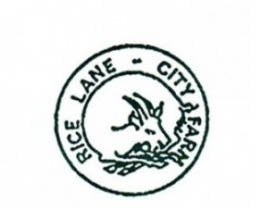

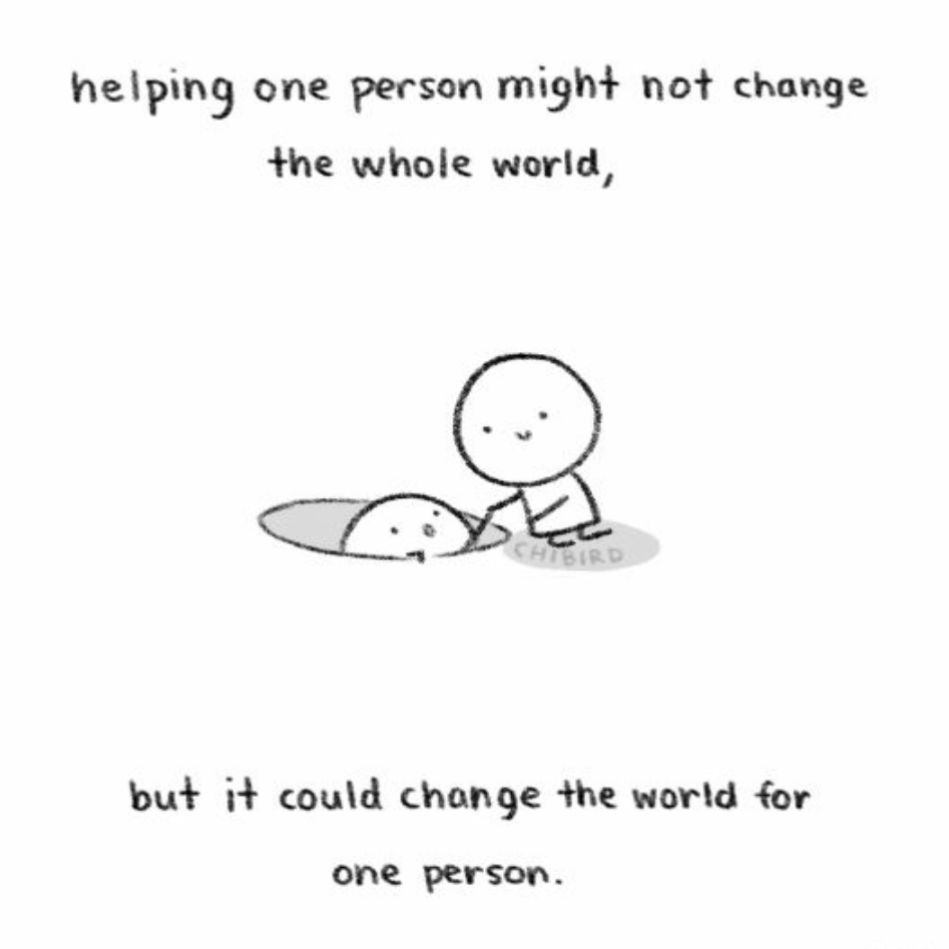

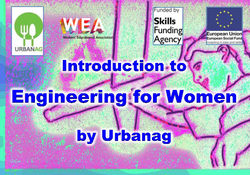



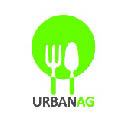
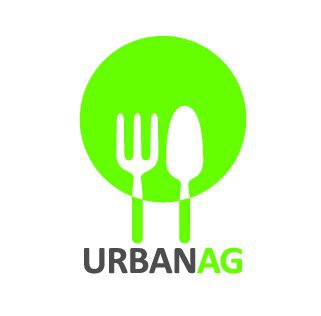
 RSS Feed
RSS Feed
